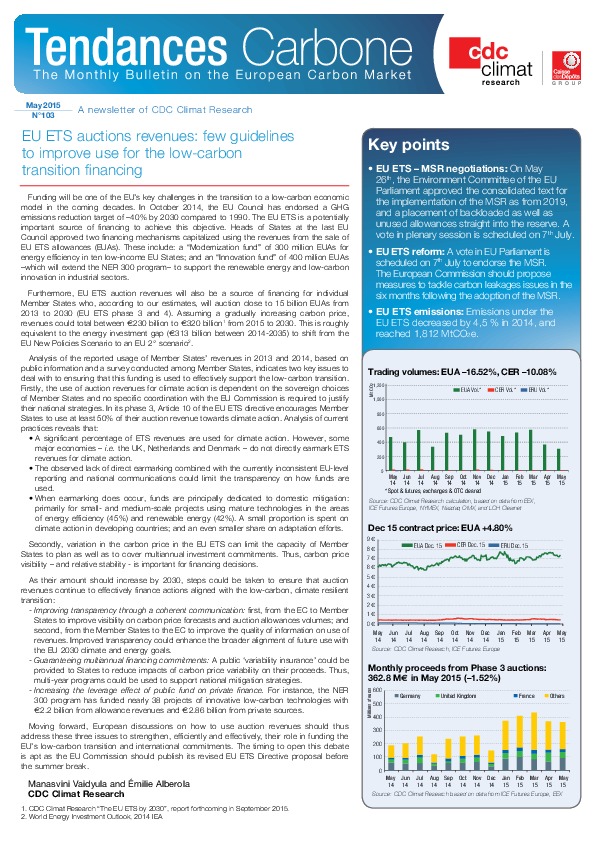EU ETS auctions revenues: few guidelines to improve use for the low-carbon transition financing
![]() EU ETS – MSR negotiations: On May 26th, the Environment Committee of the EU Parliament approved the consolidated text for the implementation of the MSR as from 2019, and a placement of backloaded as well as unused allowances straight into the reserve. A vote in plenary session is scheduled on 7th July.
EU ETS – MSR negotiations: On May 26th, the Environment Committee of the EU Parliament approved the consolidated text for the implementation of the MSR as from 2019, and a placement of backloaded as well as unused allowances straight into the reserve. A vote in plenary session is scheduled on 7th July.
![]() EU ETS reform: A vote in EU Parliament is scheduled on 7th July to endorse the MSR. The European Commission should propose measures to tackle carbon leakages issues in the six months following the adoption of the MSR.
EU ETS reform: A vote in EU Parliament is scheduled on 7th July to endorse the MSR. The European Commission should propose measures to tackle carbon leakages issues in the six months following the adoption of the MSR.
![]() EU ETS emissions: Emissions under the EU ETS decreased by 4,5 % in 2014, and reached 1,812 MtCO2e.
EU ETS emissions: Emissions under the EU ETS decreased by 4,5 % in 2014, and reached 1,812 MtCO2e.
